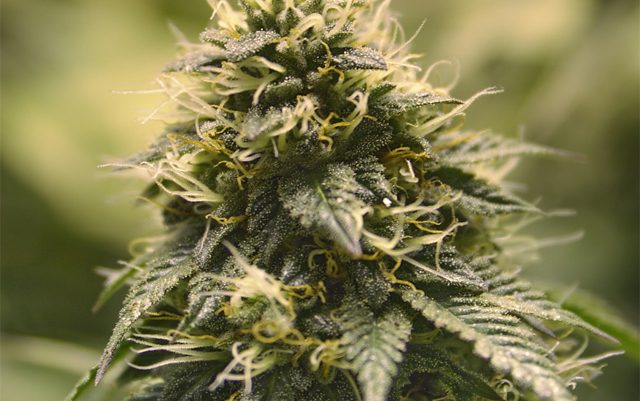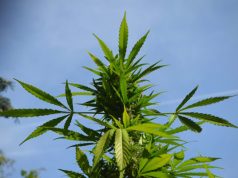Thanks to the Ice Bucket Challenge, amyotrophic lateral sclerosis (or ALS or Lou Gehrig’s disease, as it is more commonly known) has gained media and public popularity all over the world. ALS is a fatal, progressive neurodegenerative condition that occurs as a result of selective loss of motor neurons in the brain stem, motor cortex and spinal cord. ALS strikes all of a sudden, commonly between the ages of 40 and 70. Approximately, 5,600 people are being diagnosed per year. The exact cause of ALS is still unknown, but it is believed to be due to neurotoxicity, inflammation and oxidative stress in the motor neurons. These events impair the brain’s ability to initiate or control muscle movements.
Way before the clinical diagnosis, the muscle atrophy, abnormal body weakness and spasticity occurs. At some point in time, ALS patients suffer breathing difficulties, as well as an inability to control their body, which effectively confines them to a wheel chair and makes ventilation a necessity to live.
ALS is not completely a motor neuron disorder due to the critical involvement of non-neuronal cells, such as astroglia and microglia. The symptoms of ALS vary between one patient and another; but impaired movements, speaking, eating and breathing are universal. Most patients die due to respiratory failure, typically within 2.5 to 5 years of diagnosis. As ALS is a complex disorder, researchers struggle to find a cure or even an effective disease-delaying treatment.
If we look into the available scientific evidence, we are able to see encouraging evidence to suggest that cannabinoids may have therapeutic value in ALS by delaying the progression of the disease, and possibly improving the survival rate by reducing the overall disease burden.
Cannabinoids as a treatment for ALS
Despite remarkable scientific advancements and better understanding of the molecular pathology of ALS, our scientific community struggles to develop effective therapies for this devastating disease. Conventionally, ALS is being treated with a regimen of drugs including antioxidants, TNF-alpha inhibitors, mitochondria-boosting agents, neutrophic growth factors and anti-inflammatory molecules to suppress activated microglial cells. These drugs primarily suppress inflammation and oxidative stress and provide neuro-protectivity. Naturally-occurring cannabis has all these beneficial properties, and it could be employed as a monotherapy (single drug administration) to treat all of these conditions.
In ALS mouse models, cannabis has demonstrated potent anti-inflammatory, antioxidant and neuroprotective benefits. These benefits could prolong neuronal cell survival and delay the worsening of the disease, if not delaying the disease onset. Additionally, cannabis may be helpful to treat other symptoms of ALS by promoting bronchodilation, muscle relaxation, and by improving sleep and appetite.
Activation of CB1 receptors by cannabinoids exerts anti-glutamatergic action by the inhibition of glutamate release from presynaptic nerve terminals, thereby reducing the postsynaptic calcium influx and glutamate excitotoxicity in the motor neurons. Likewise, activation of CB2 receptors provides anti-inflammatory benefits by influencing inflammatory mechanisms, including inhibition of microglial activation and subsequent decrease in microglia-derived neurotoxic mediators.
The antioxidant benefits of cannabinoids are exerted by a receptor-independent mechanism. An experimental study has confirmed that THC may prevent ALS progression by mitigating oxidative stress (free radicals-induced cell damage) and excitotoxicity of motor neurons.
In a knockout animal study, cannabinol (CBN) administration delayed the onset of ALS symptoms but did not improve the survival rate. Similar results were reported in another study. This study concluded that inactivation of CB1 receptors did not impact or extend survival in ALS mouse models, suggesting that the therapeutic benefits of phytocannabinoids may be mediated by non-CB1 dependent receptor mechanisms.
One independent study reported that THC treatment (before and after ALS onset) paused the worsening of the disease and improved the survival rate in the treated animals, while no benefits were observed in the untreated control group.
This hypothetical evidence calls for human clinical trials, and the lack of sound clinical trials provides support to anecdotal reports including patient-reported benefits.
Anecdotal Evidence
As of now, no properly-designed clinical trials have been conducted to investigate the therapeutic potential or disease-modifying properties of cannabis in ALS patients. If we can’t see enough clinical trial evidence, it is not wrong to turn to anecdotal evidence.
In 2013, a Maine-based radio broadcaster named Mark Bushey was diagnosed with ALS. After unsuccessful conventional treatment, he started using medical cannabis to treat the symptoms. According to him, cannabis use has improved pain, sleep, breathing and appetite.
In the mid 1980’s, Cathy Jordan, a Florida-based woman, was diagnosed with ALS and clinicians told her she would not live more than five years after her diagnosis. After several months, she began using medical cannabis and experienced symptomatic improvements, which her doctors refused to acknowledge because, she was using an ‘illegal’ drug to treat herself.
Cathy survived for more than 25 years after her diagnosis. In 2012, she revealed that ‘all her doctors were either retiring or dead’. She outlived four neurologists and five support groups.
In a survey study, most of the patients (respondents) reported cannabis use was effective in alleviating ALS symptoms including pain, depression, drooling and lack of appetite.
In a publication study, researchers at the ALS Centre noted that cannabis could offer a broad therapeutic value to adequately treat ALS symptoms. The researchers called for multi-centric, randomized, placebo-controlled, double-blinded clinical trials to demonstrate the disease-modifying potential of cannabis in ALS patients.
A 2007 study conducted by a university research group in Spain concluded that phytocannabinoids can offer neuroprotective benefits for a variety of diseases, including ALS and multiple sclerosis.
Another Spanish study reported that cannabinoids may be beneficial to treat several neurological disorders, including ALS.
Symptomatic treatment benefits in humans
We are aware of the therapeutic properties of most of the phytocannabinoids such as THC, CBD, CBN, CBC and THCv.
With their analgesic and anti-inflammatory properties, THC, CBC and THCv may treat muscle pain, neuroinflammation and promote brain cell survival. As a powerful antioxidant, CBD attenuates oxidative stress and inflammation in ALS brain cells. Similarly, CBN reduces muscle spasticity associated with ALS.
Instead of trying either CBD or THC, it is best to use whole-plant cannabis to fight the symptoms of ALS. Whole-plant cannabis is packed with several beneficial cannabinoids, which enhance and/or synergize the effects of other cannabinoids to treat ALS symptoms by entourage effect.
In this way, the potential of cannabinoids to target multiple neurotoxic pathways in different cell populations may increase, and provide therapeutic benefits against ALS.
There is no large-scale clinical trial evidence to demonstrate that cannabis is an effective treatment for ALS. However, it has been shown that modulation of the endocannabinoid system might prevent the progression — and even the initiation — of ALS. We are well aware of the favorable safety profile of medical cannabis in other neurodegenerative disorders.
With its neuroprotective, anti-inflammatory, analgesic and antioxidant properties, cannabis may be a safer and more effective symptomatic treatment option than conventional therapeutic drugs for those suffering with ALS.







Cathy Jordan is an inspiration to us all here in Florida. She continues to fight for medical cannabis and continues to have a fire and spirit about her that is contagious. Floridians have the ability this November to vote YES on Amendment 2 and allow patients like Cathy to use cannabis legally.